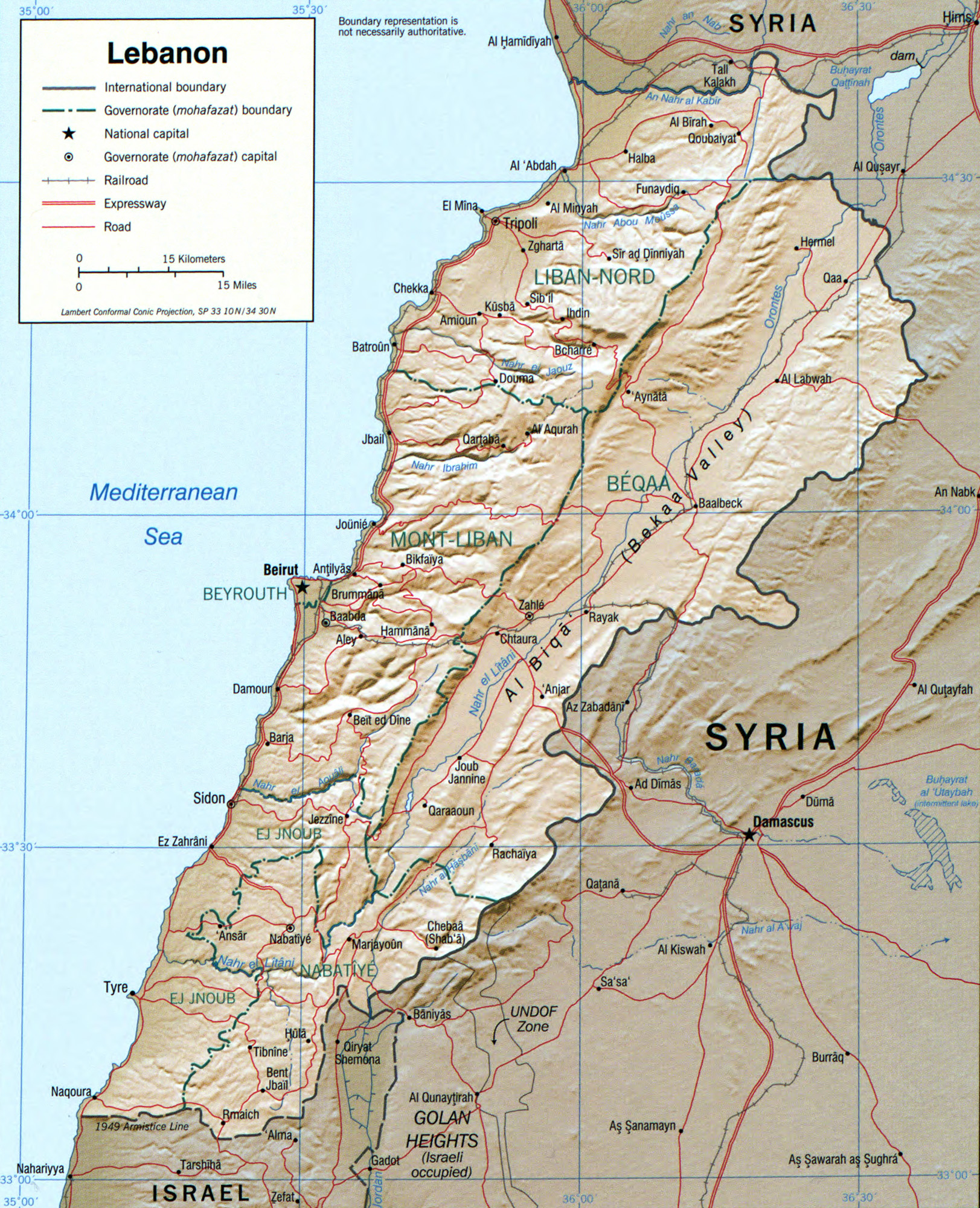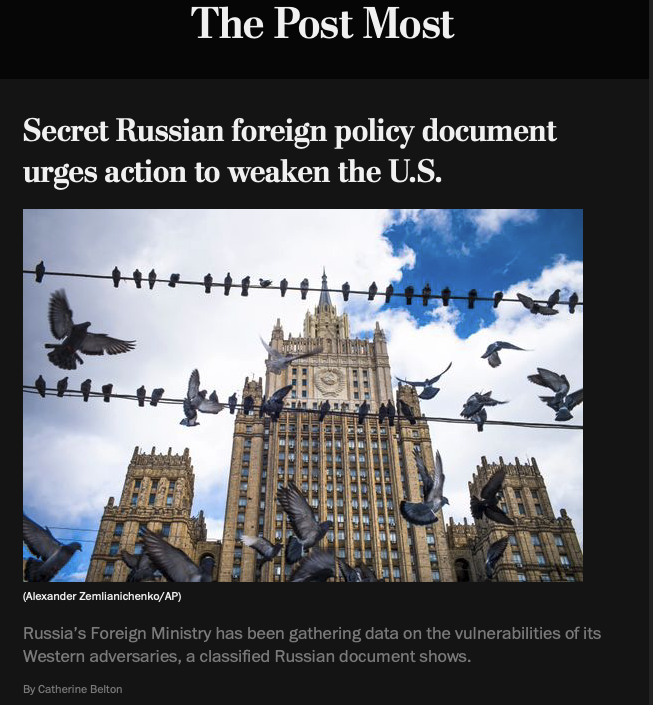Patrick Lawrence: No More Silence

 Patrick Lawrence
Patrick Lawrence
Crosspost with Consortium News
| Resize text-+= |

Die-in protest of the Israel Independence Day celebration, Washington, D.C., May 23, 2024. (Diane Krauthamer, Flickr, CC BY-NC-SA 2.0)
By Patrick Lawrence
ScheerPost
 I do not know how it is in your household, but in mine we have developed the practice over the past nine months of reciting to one another the most appalling of the news bulletins from Gaza that come our way from a great variety of sources. It is rather miserable to think life has come to this, reading aloud daily accounts of atrocities, but there is no turning away from the depths to which terrorist Israel has dragged the whole of humanity.
I do not know how it is in your household, but in mine we have developed the practice over the past nine months of reciting to one another the most appalling of the news bulletins from Gaza that come our way from a great variety of sources. It is rather miserable to think life has come to this, reading aloud daily accounts of atrocities, but there is no turning away from the depths to which terrorist Israel has dragged the whole of humanity.
The subtext of each of these recitations is, “Can you believe this is happening? Can you believe the U.S. participates in this? Can you believe this is normalized?”
It is indeed difficult to believe the things we read of are part of life in the third decade of the 21st century, and may this remain so: When it is no longer difficult to read or watch videos of the Israelis’ merciless barbarities, the Zionist army will have bombed and bulldozed our consciences as thoroughly as it has any Gazan or West Bank village.
Over the weekend my partner told me she had read something that was simply too much even for our recitation routines. It was a piece Politico had published on July 19, and it had arrived courtesy of Jonathan Cook, the estimable British journalist.
“We Volunteered at a Gaza Hospital. What We Saw Was Unspeakable” was written not by journalists, but by two American surgeons who had volunteered last spring for humanitarian work in Gaza by way of the Palestinian American Medical Association. Mark Perlmutter is an orthopedic surgeon from North Carolina. Feroze Sidhwa is a trauma and critical care surgeon who practices in Northern California.
“I haven’t been able to mention this until now,” my partner began, her voice cracking. Then, holding back tears, she told me about the Politico piece. She related the stories of two Palestinians the American surgeons treated during their time at the European Hospital. The European Hospital sits at the southeastern edge of Khan Younis, the city in central Gaza where the Israeli Occupation Forces earlier directed Palestinians to evacuate, then bombed, then left, and now, Khan Younis having been resettled, is now being bombed again.

Screenshot from Tasnim News Agency footage of an ambulance on Oct. 7, 2023, operated by the Palestine Red Crescent Society in Khan Yunis, Gaza Strip, after it was heavily damaged by an Israeli military airstrike. According to the report, at the time of attack the ambulance was in front of Nasser Hospital, carrying three injured people. (Tasnim News Agency, Wikimedia Commons, CC BY 4.0)
Here are the stories.
Juri
One is about a 9-year-old girl named Juri. She was malnourished, unconscious, and in septic shock when Perlmutter and Sidhwa came upon her at the hospital. They operated immediately, and when they did, they found, among other things, she was missing part of a femur and most of the flesh on one thigh. Her buttocks were cut so severely her pelvic bones were exposed. As they proceeded, maggots fell in clumps from Juri’s body.
“Even if they saved her,” my partner said, “she will live a life of severe disability and constant pain.”
Tamer
The other story concerns a nurse who was serving at the Indonesian Hospital last November when Israeli terrorists raided the facility. Tamer, a young man with two children, was assisting the orthopedics staff in the operating room at the time. When he refused to leave an anesthetized patient, an Israeli soldier shot him point blank in the leg.
strapped to a table for 45 days. No medical care, one glass of juice most days, though sometimes not even that. His bone became infected — this is called osteomyelitis — and he was beaten so severely one eye fell out of its socket.
Perlmutter and Sidhwa:
“Later, he said, he was unceremoniously dumped naked on the side of a road. With metal sticking out of his infected and broken leg and his right eye hanging out of his skull he crawled for two miles until someone found him and brought him to European Hospital.”
The Politico piece is illustrated with many photographs taken by Feroze Sidhwa. One showed Tamer during his treatment just after he was shot: a strapping, vigorous man lying in a hospital bed. Another showed Tamer after he returned from his 45 days in captivity: emaciated, looking 20 years older, stripped of all vitality, his face set in what psychiatrists call flat affect.
“When it is no longer difficult to read or watch videos of the Israelis’ merciless barbarities, the Zionist army will have bombed and bulldozed our consciences as thoroughly as it has any Gazan or West Bank village.”
My mind snapped as my partner offered summaries of these two stories. “That’s it!” I shouted. “It’s impossible to go on this way any longer.” I began asking in desperate tones what someone trying to be human can do while a nation run by terrorists disgraces all of those now living but for the Palestinian people and the Perlmutters and Sidhwas who give of themselves to them. I thought of Randy Kehler and all those honorable people who started the famous — back then, anyway — tax revolt during the Vietnam War. I thought of Camus and his invocation of Sisyphus: the futility of all action, the necessity of any.
I eventually returned to the headline atop the Politico piece. Yes, what Perlmutter and Sidhwa saw was unspeakable, there is no arguing this. If you read what they have written, and I urge everyone to do so, you must brace yourself for your reaction to it, as my own case may suggest. These two surgeons saw unspeakable things during their time in Gaza, but now they speak of them. And when they speak of the unspeakable, there is the potential for transformation in what they say. We must not miss this. We must not fail to see the power of language when put to its highest purpose.
“What can we do?” is surely a question on the minds of millions of people as apartheid Israel proceeds with its genocide in Gaza — and now escalates its criminal conduct in the occupied West Bank. What makes this question so serious a conundrum is that the Gaza genocide and America’s direct participation in it have pushed in our faces the reality that, American democracy in ruins, there are no mediating institutions any longer available to us through which to express our will.
Please see related article:
Politico Does Journalism: “We Volunteered at a Gaza Hospital. What We Saw Was Unspeakable.”
As I sat to write this, Caitlin Johnstone, the Australian journalist, sent around a message posted on “X” by someone going by ThePryingEye, who makes a point that simply takes my breath away. “What is happening in Gaza is awful,” ThePryingEye has it, “but asking people to give up what they need to survive for morals is an unfair card to play. People are suffering here already, and when it can possibly get worse, it’s not that people don’t care about Gaza or we are selling the[sic] out for a taco.”
I hope my editors and readers will forgive my French, but what kind of fucking drip would say such a thing? ThePryingEye is, first, the lumpen exemplar of Western humanity’s long decline into moral slovenliness and what I call consumer nihilism. In this I would love to learn ThePryingEye’s idea of what people “need to survive” — apart from tacos, of course.
But there is something else here we must not miss: Whoever this pitiful person is, he or she is the victim of decade upon decade during which power has cynically abused language and images to strip eyes of the ability to see, ears of the ability to hear, minds of the ability to think, and — these most of all — tongues of the ability to speak and bodies of the ability to act. ThePryingEye is exactly how this is intended to turn out: a taco-eating dolt perfectly at home with “Nothing” as the answer to “What can we do?”
When we face at last the reality that we have been deprived of any institutional means to mediate our politics, it follows that we are forced back upon ourselves. And when we become self-reliant in this way, it will come to us that, as Perlmutter and Sidhwa have very clearly demonstrated, there is power in language, in speaking of the unspeakable.
“When they speak of the unspeakable, there is the potential for transformation in what they say. We must not miss this. We must not fail to see the power of language when put to its highest purpose.”
I am not at all surprised that the Israelis and the Biden regime — along with the Germans and others — have radically escalated their long-running attack on clear language, most obviously but not only in their patently nonsensical effort to condemn as “antisemitic” even simple expressions of sympathy for Palestinians. Isn’t the objective here obvious? Isn’t it plain that these people understand the power of language and the necessity to control it if Western populations are to remain in ThePryingEye’s condition?
The other image I mention here confirms this impression: It is a photograph of a wall in the pediatric wing of the European Hospital, where one of Perlmutter and Sidhwa’s Palestinian colleagues has scribbled: “#Gaza We don’t care anymore about anything.” An illegible signature follows.
Isn’t this the kind of thing we read in accounts of Holocaust survivors? Giorgio Agamben went long on just this topic in Remnants of Auschwitz (Zone Books, 1999), wherein he examined the reduction of those in the camps to dehumanized ghosts — psychologically destroyed, many of them beyond retrieval.
“I will be satisfied if Remnants of Auschwitz succeeds only in correcting some of the terms with which we register the decisive lesson of the century,” he wrote in a preface, “and if this book makes it possible for certain words to be left behind and others to be understood in a different sense. This is also a way — perhaps the only way — to listen to what is unsaid.”
Let us take some inspiration from the Italian philosopher and correct some terms while understanding others differently. This is my reply to “What can we do?” It is to refuse any longer to let our opinions and our expression of them be either policed or self-policed. Perlmutter and Sidhwa can liberate us in this way if we let them.
Read their piece again if you need to do so, think about what these past months of terror have done to Gazans, then join me in asking what we are not supposed to ask: Is what Israel is doing in Gaza worse than the Holocaust? I insist we now pose this question instead of flinching from it. Waiting to die? Getting it over with? I am not much for keeping scorecards of atrocity-committing regimes, but there seems an argument that the Reich’s camps were less terrorizing than the Israeli camp called the Gaza Strip.
After reading Perlmutter and Sidhwa, I went back to that remarkable essay Pankaj Mishra published last March in the London Review of Books, “The Shoah After Gaza.” I wanted to read again of all those prominent Jewish writers and thinkers, many of them Holocaust survivors, who rejected the Zionist project in the early years after its inception.
Yeshayahu Leibowitz, who won the Israel Prize in 1993, warned 25 years earlier of “the Nazification of Israel.” Jean Améry, the Austrian writer, after reports of torture in Israeli prisons began to surface in the 1970s:
“I urgently call on all Jews who want to be human beings to join me in the radical condemnation of systematic torture. Where barbarism begins, even existential commitments must end.”
And then the case of Primo Levi, the famous survivor of the camps and author of, among other things, If This Be a Man, his account of his time at Auschwitz. A couple of years into the regime of Menachem Begin, who was not Israel’s first terrorist prime minister and not the last, Levi dismissed the Zionist project altogether. “The center of gravity of the Jewish world must turn back,” he wrote, “must move out of Israel and back into the diaspora.” He later told an American audience, “Israel was a mistake in historical terms.”
To turn back. I stand with Levi. I take courage from him and conviction from Perlmutter and Sidhwa to say now in the clear language we can admire in these three: Israel, an artificial construct misguided from the first, has to go. Some way or other it can no longer be permitted to exist—not as it is now constituted, and not in any hopeless notion of a two-state solution. We cannot tolerate the unceasing, systematic, criminal cruelty of a human population to which Israel has committed itself. Only a single, secular state that recognizes the equal rights of all has any promise of civilizing the Zionist presence in the Middle East.
I do not know how the project of ending this failed experiment may begin, but it should be set in motion as soon as possible. I see nothing shocking in this judgment once the paraphernalia of geopolitics is stripped away and the fraud of marking this thought down to “antisemitism” is dismissed. Eliminating the Nazi regime was a global project on the grounds of sheer humanity. Again, I am not much interested in precisely how Israel stacks up against the Reich, but we must acknowledge the similarities now such that the same principle obtains.
It will be 46 years this November since the U.N. passed Resolution 3379, wherein the General Assembly “determines that Zionism is a form of racism and racial discrimination.” I am struck once again at the clarity of language that was once prevalent in public discourse and conclude that the immediate project is to recover it. Resolution 3379 was revoked in 1991 after the U.S. applied heavy and extensive pressure among the General Assembly members. “And to equate Zionism with the intolerable sin of racism,” George H.W. Bush said as he introduced the motion, “is to twist history and forget the terrible plight of Jews in World War II.” It is interesting to note how the Holocaust was leveraged, even then, in a way I have always thought a dishonor to the 6 million victims.
Bush got one thing very right that day. “To equate Zionism with racism is to reject Israel itself,” he said. It is many years later now, and Israel’s conduct in the interim seems to me to prove out this equation. This is the diabolic things about the Gaza atrocities. The Israeli military does not understand its operation there as cruel or immoral or in any way wrong. As Israeli leaders make clear again and again, they believe they are righteously doing God’s work.
“To turn back. I stand with Levi. I take courage from him and conviction from Perlmutter and Sidhwa to say now in the clear language we can admire in these three: Israel, an artificial construct misguided from the first, has to go.”
Here is Bibi Netanyahu reacting to the International Court of Justice’s judgment last week, perfectly obvious in itself, that Israel’s occupation of all Palestinian land— not just the West Bank — is illegal.
“The Jewish people are not occupiers in their own land, including in our eternal capital Jerusalem nor Judea and Samaria, our historical homeland. No absurd opinion in The Hague can deny this historical truth or the legal right of Israelis to live in their own communities in our ancestral home.”
This remark, openly defiant of decades of international law, openly indifferent to the legal commitments Israel made at its founding and many times since, can be read as a useful prelude to Netanyahu’s monumentally dishonest, reality-warping speech Wednesday to a joint session of Congress. His reiterated dismissal of the ICJ’s ruling — “utter and complete nonsense” — takes a minor place among the Zionist leader’s offensive distortions. Civilian deaths in Gaza have been minimal, the Israeli army should be commended, not criticized, Americans demonstrating for the Palestinian cause “stand with murderers” and are “Iran’s useful idiots,” the Palestinians are comparable to wartime Germans and Japanese: Netanyahu’s hour-long speech was end-to-end with this kind of thing.
The Israeli leader’s markedly assertive oration was revealing, at the same time, of the psychological injuries that lie deep within the Zionist project. He offered a generous recital of the centuries of antisemitic persecution across Europe and, of course, the great, indelible hurt of the Holocaust. Netanyahu’s world is one of we-they, us-and-them. You can hear in his these sentences the Zionists’ addiction to permanent victimhood and (especially interesting to me) the paranoia attaching to the feeling, common among Israelis, that the Jews of Europe appeared weak and unmanly as the Reich sent them to the camps. “The Jewish people are no longer helpless in the face of our enemies,” Netanyahu asserted proudly — confirming to my satisfaction that the Zionist project is in one dimension unhealthily, even dangerously compensatory.
“Jerusalem will never l be divided,” Netanyahu declared — an assertion he made in just these words when he last addressed Congress nine years ago. “The land of Israel, of Abraham, Jacob, and Issac, has always been our home and it will always be our home.” There you have it, as baldly stated as possible: Zionist Israel has no intention of entering talks of any kind to settle the Palestinian conflict and insists that the Old Testament is the only law it will observe.
And here we come to Netanyahu’s true purpose in Washington this week: It is to bind the U.S. fully into the Israeli cause even as it reaches egregious extremes.
“We meet today at a crossroads in history,” he said. “This is not a clash of civilizations. It is a clash between barbarism and civilization.” This is beyond preposterous if you keep Perlmutter and Sidhwa in mind as true witnesses to history. But to go by Netanyahu’s reception Wednesday afternoon, the U.S. will buy his story and invest ever more deeply in it. I counted 72 ovations as this de facto war criminal spoke, all but seven of them of the standing variety.
The great majority of those in Netanyahu’s audience, let us not forget, have accepted one or another form of bribe from the Israel lobby. As John Whitbeck, the Paris-based international attorney, put it in a privately circulated note Wednesday afternoon,
“Anyone watching this spectacle could only conclude that the United States of America has ceased to be a respectable independent state, as, indeed, it has been for many years already, a wholly-owned subsidiary of the State of Israel, with shared values rightfully rejected by the overwhelming majority of mankind.”
Bibi Netanyahu is what Zionism sounds like in 2024. There is nothing in it to work with, nothing to honor, nothing to respect. If Zionist ideology ever fit into the modern world, and I will leave this an outstanding question, it no longer does. Intent on dehumanizing the Palestinian people, Zionists have succeeded in ennobling them while making themselves deformed creatures, nothing more or less than humans without humanity.
I do not seem to be the only one deeply affected by the Perlmutter–Sidhwa piece in Politico. Over the weekend Perlmutter gave a lengthy interview to CBS Sunday Morning, during which he reflected further on what he saw while at the European Hospital:
“All of the disasters I’ve seen, combined — 40 mission trips, 30 years, Ground Zero, earthquakes, all of that combined — doesn’t equal the level of carnage that I saw against civilians in just my first week in Gaza…. I’ve seen more incinerated children than I’ve ever seen in my entire life, combined. I’ve seen more shredded children in just the first week … missing body parts, being crushed by buildings, the greatest majority, or bomb explosions, the next greatest majority. We’ve taken shrapnel as big as my thumb out of 8-year-olds.
And then there’s sniper bullets. I have two children that I have photographs of that were shot so perfectly in the chest, I couldn’t put my stethoscope over their heart more accurately, and directly on the side of the head, in the same child. No toddler gets shot twice by mistake by the ‘world’s best sniper.’ And they’re dead-center shots.”
It is time to say certain things, readers. It is time to put aside the policing and self-policing of our views of the things we see and hear. Time to make good use of language to say what we mean. It is time to see in ThePryingEye all those “good Germans” who saw what was going on around them during the 1930s but turned the other way and went about their business. Time to say, “Actually, what we need to survive is to utter the truth and determine to act on it.”
This is the first thing we can do. Much stands to come of it.
via Amazon. Other books include Time No Longer: Americans After the American Century. His Twitter account, @thefloutist, has been permanently censored.
TO MY READERS. Independent publications and those who write for them reach a moment that is difficult and full of promise all at once. On one hand, we assume ever greater responsibilities in the face of mainstream media’s mounting derelictions. On the other, we have found no sustaining revenue model and so must turn directly to our readers for support. I am committed to independent journalism for the duration: I see no other future for American media. But the path grows steeper, and as it does I need your help. This grows urgent now. In recognition of the commitment to independent journalism, please subscribe to The Floutist, or via my Patreon account.
This article is from ScheerPost.
- In cynicism and power, the US propaganda machine easily surpasses Orwells Ministry of Truth.
- Now the fight against anti-semitism is being weaponised as a new sanctimonious McCarthyism.
- Unless opposed, neither justice nor our Constitutional right to Free Speech will survive this assault.
Print this article
The views expressed herein are solely those of the author and may or may not reflect those of The Greanville Post.
 This work is licensed under a Creative Commons Attribution-NonCommercial 4.0 International License •
This work is licensed under a Creative Commons Attribution-NonCommercial 4.0 International License •
ALL CAPTIONS AND PULL QUOTES BY THE EDITORS NOT THE AUTHORS










